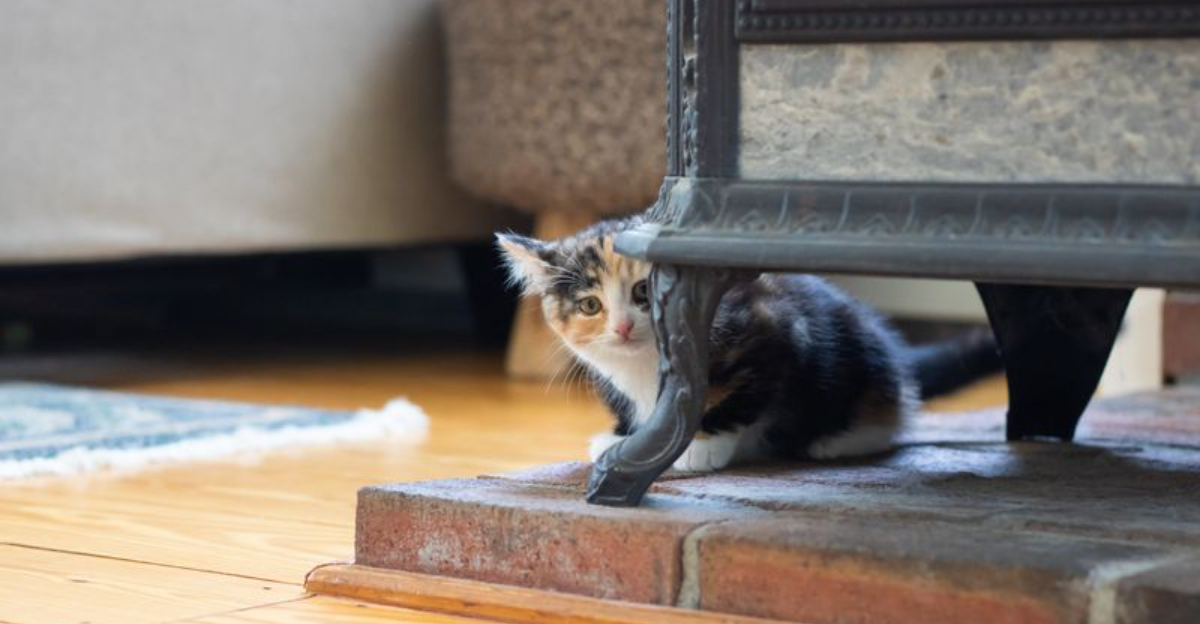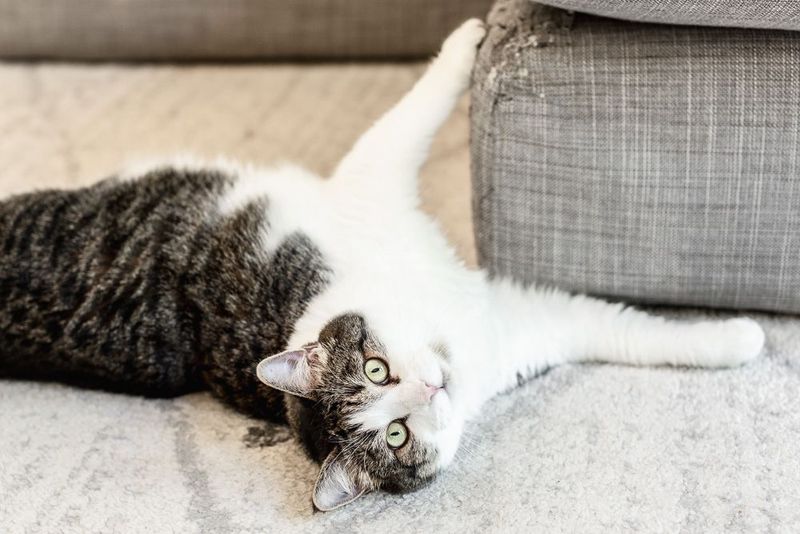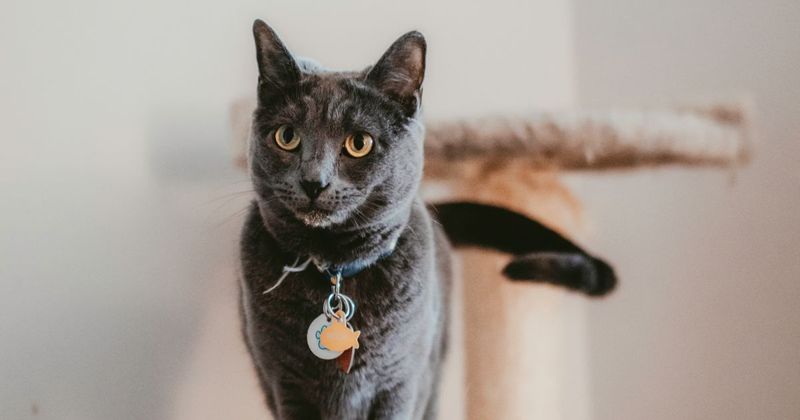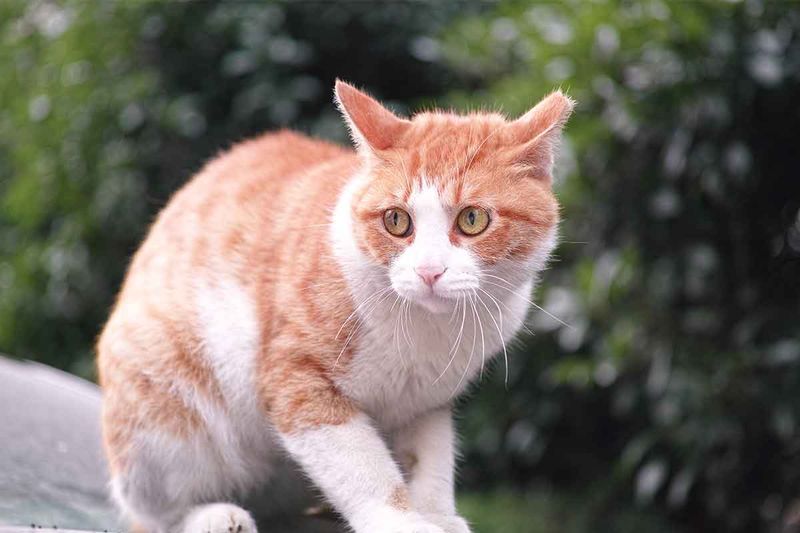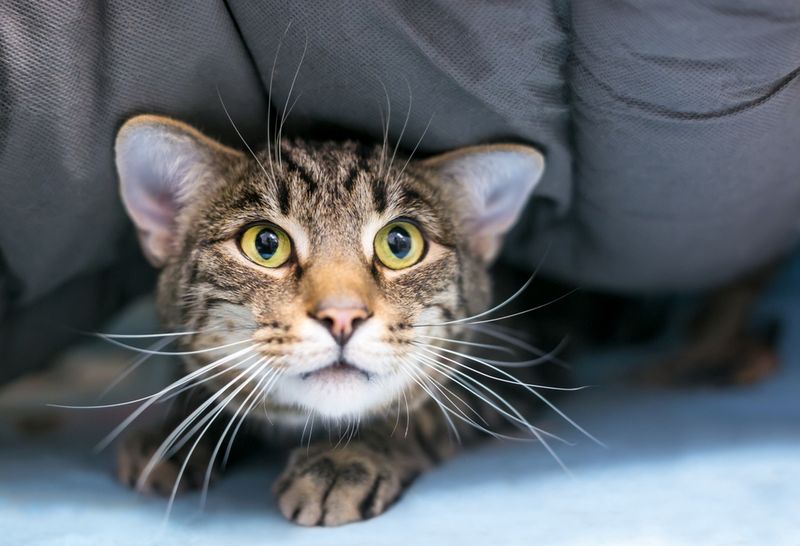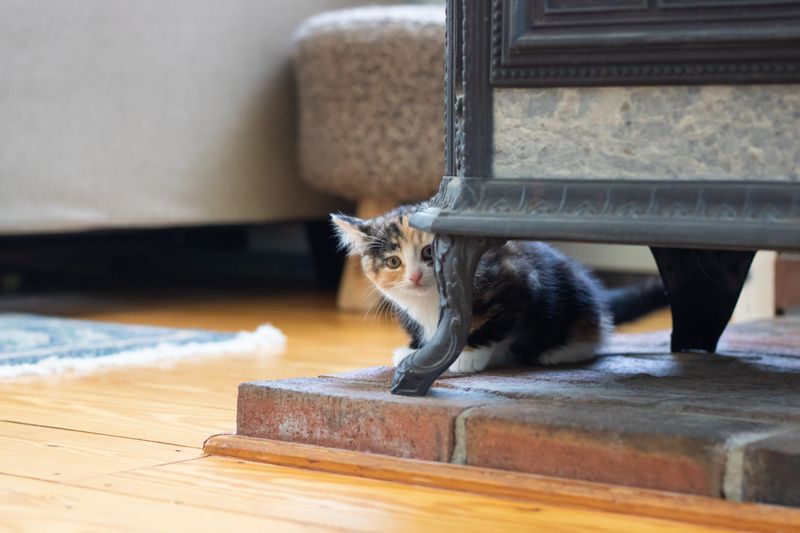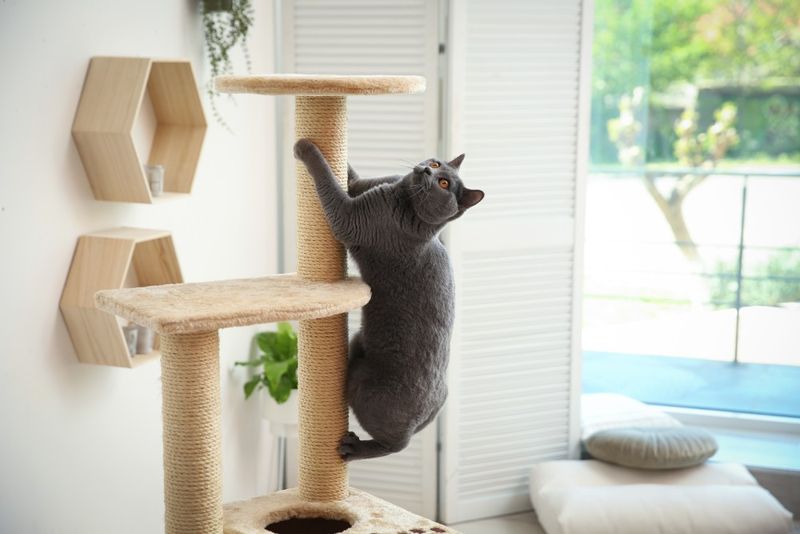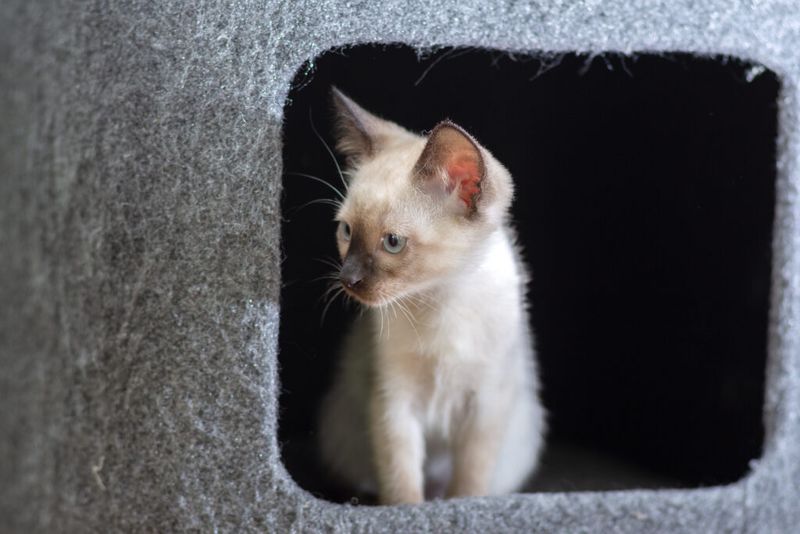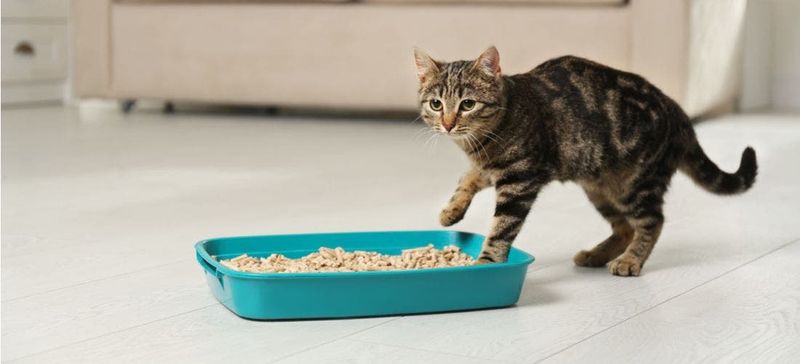📖 Table of Content:
- 1. Punishing Them Physically or Verbally
- 2. Forcing Physical Contact
- 3. Ignoring Body Language Cues
- 4. Using Strong Fragrances
- 5. Making Loud Noises
- 6. Bringing in Strangers Without Warning
- 7. Neglecting Their Need for Vertical Space
- 8. Changing Their Environment Abruptly
- 9. Interrupting Their Sleep
- 10. Not Cleaning the Litter Box Often
Cats often carry a reputation for being aloof or independent, but the reality is that they form deep emotional bonds with their humans—ones built slowly over time through consistent, respectful behavior. While many cat owners go out of their way to provide love and care, there are seemingly minor actions that may inadvertently cause harm to the relationship. Because cats interpret the world so differently from us, even harmless habits might send the wrong message.
Understanding a cat’s psychology requires more than affection; it demands observation, patience, and an appreciation for their unique communication style. Where a dog might tolerate or quickly forgive a misstep, cats can become wary, stressed, or even withdrawn after repeated negative interactions. This doesn’t mean living with a cat must feel like walking on eggshells—but it does require thoughtfulness.
Many common household behaviors can erode your cat’s trust without you realizing it. Whether it’s something as simple as a loud sneeze or a shift in your routine, these disruptions can add up. The following sections explore ten specific activities that may be silently undermining your connection with your cat, along with practical suggestions for fostering a stronger, more secure bond.
1. Punishing Them Physically or Verbally
Physical or verbal punishment may seem like an immediate way to stop undesirable behavior, but to a cat, it’s confusing and frightening. Unlike dogs, cats don’t associate your anger with their actions in a cause-and-effect way. Instead of learning, they often feel betrayed or fearful, eroding the trust you’ve built. Shouting, spraying water, or swatting may lead to anxiety or defensive behavior, not obedience. Cats respond far better to calm redirection and positive reinforcement when they do something right. Over time, harsh treatment can make them associate your presence with stress, even if you’re loving at other times. Rather than correcting behavior, punishment often ends up damaging the relationship.
2. Forcing Physical Contact
Initiating unwanted physical interaction, like picking up or petting your cat without consent, can make them feel trapped or vulnerable. Cats value autonomy and prefer to choose when and how they engage. Respecting their boundaries is critical to earning and keeping their trust. Some cats are affectionate and crave attention, while others prefer limited contact—it’s vital to let them decide. When a cat approaches you, it’s a sign of trust, and returning that gesture on their terms strengthens the bond. Forcing touch, especially in moments of rest or stress, may teach them to avoid you. Giving them space doesn’t mean you’re being distant—it shows respect.
3. Ignoring Body Language Cues
Overlooking the small cues your cat gives can lead to misunderstandings that escalate into conflict. Flattened ears, flicking tails, or dilated pupils are subtle signs that your cat is stressed or overstimulated. Cats rely on body language to communicate discomfort long before they act out physically. Ignoring these signs may cause them to swat, bite, or hide, which are often last-resort efforts to be heard. Consistently misreading or disregarding these cues can create a sense of unease around you. Observing and honoring their signals teaches them that they are safe and understood. In turn, this builds mutual trust and reduces the chance of reactive behavior.
4. Using Strong Fragrances
Scent plays a dominant role in a cat’s experience of the world, and overly fragrant products can be overwhelming or even distressing. Air fresheners, essential oils, perfumes, and even some cleaning products may seem pleasant to us but can be intrusive to their sensitive noses. In extreme cases, certain substances may even be toxic to cats, leading to health issues. Cats mark their territory and feel secure through familiar scents, so masking their environment with foreign odors can disrupt their comfort. What’s more, scent-based territory cues help them navigate and feel safe in their home. Constantly altering this olfactory landscape can make them feel displaced or agitated. Opting for unscented or pet-safe options is a small change that makes a big difference.
5. Making Loud Noises
Sudden or sustained loud noises can cause a cat to associate their home with unpredictability and fear. While human ears may adapt quickly to music, video games, or TV, cats are finely tuned to pick up on even minor changes in sound. Slamming doors, dropping heavy items, or shouting—even in excitement—can send them fleeing to their hiding spots. When this happens regularly, your cat may begin to view you as a source of disturbance rather than safety. This anxiety can lead to behavioral issues, such as hiding more frequently, refusing affection, or even aggression. Creating a more peaceful environment, or offering a quiet retreat, helps them feel secure. Remember, tranquility is a cornerstone of a cat’s well-being.
6. Bringing in Strangers Without Warning
Having guests over might seem like a routine social event, but for cats, unexpected visitors can be deeply unsettling. Cats are territorial and prefer consistency in their surroundings, including the people who enter it. When strangers arrive without any time to prepare or adjust, a cat may feel threatened or insecure. This can lead to hiding, vocalizing, or defensive behaviors, especially in shy or anxious cats. Offering safe spaces where they can observe from a distance helps ease the stress. Giving them time and control over the interaction increases their comfort. Introducing new people slowly, with quiet voices and still movements, allows them to adapt on their own terms.
7. Neglecting Their Need for Vertical Space
Cats are natural climbers and often seek height to feel secure and in control of their environment. A lack of vertical territory—like shelves, cat trees, or window perches—can leave them feeling exposed and vulnerable. High places serve as observation posts where they can relax without fear of sudden approach. Without these spaces, some cats may become territorial on the ground, react aggressively to perceived threats, or retreat under furniture. Providing vertical options isn’t about luxury—it meets an instinctual need. Even simple solutions like cleared shelves or furniture near windows can transform their comfort level. Investing in these spaces builds both trust and emotional well-being.
8. Changing Their Environment Abruptly
Cats thrive on routine, and sudden environmental changes—like moving furniture, relocating food bowls, or changing litter brands—can cause stress or confusion. These disruptions can make a cat feel like they’ve lost control of their space. Even positive changes can be overwhelming if they happen too quickly. A new scent or layout might cause them to stop eating, hide, or act out until they readjust. Transitioning gradually with familiar items or scent-marking objects helps reduce anxiety. Observe how your cat responds to shifts in their environment and adjust accordingly. A thoughtful approach shows your cat that their comfort matters to you.
9. Interrupting Their Sleep
While it might be tempting to wake your cat for a cuddle or playtime, disturbing their rest can negatively affect their behavior and health. Cats spend 12–16 hours a day sleeping, and those sleep cycles are essential for physical recovery and emotional balance. Interrupting their naps may leave them feeling disoriented or stressed, especially if it happens regularly. Over time, they may become less affectionate or seek out hidden spots to sleep undisturbed. Allowing them to wake naturally and then engaging with them ensures more positive interactions. Respecting their sleep schedule helps build an environment of trust and comfort. Being patient allows your cat to feel more in control of their space and time.
10. Not Cleaning the Litter Box Often
A dirty litter box is one of the quickest ways to make a cat feel neglected or stressed. Cats are meticulous animals and need a clean, odor-free space to do their business. Failing to maintain this can result in them avoiding the box entirely, leading to unwanted accidents elsewhere in the home. It’s not a sign of misbehavior—it’s their way of saying something’s wrong. Daily scooping and weekly deep-cleaning are essential to keeping the environment healthy and welcoming. The placement and number of litter boxes also play a role in their comfort. When their basic needs are met consistently, they feel secure and respected. This attention to hygiene is a quiet but powerful way to maintain their trust.
